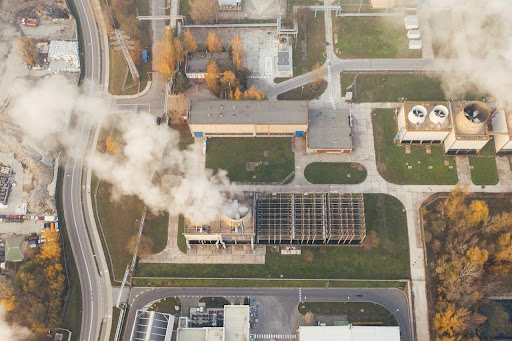Climate control is very important in industries for several reasons, ranging from the need to maintain product quality to the provision of employee comfort and safety. In most cases, industrial settings have unique dynamics that present challenges calling for customized strategies.
This article discusses six practical tips on overcoming these difficulties, leading to reliable climate control in your facility.
Implement a Comprehensive Maintenance Schedule
Regular maintenance of HVAC systems, refrigeration units, as well as other types of climate control equipment, helps prevent unexpected breakdowns and inefficiencies. Scheduled checks help discover potential issues like worn-out parts, refrigerant leaks, or blocked filters early enough.
By acting on these problems before they occur, you can avoid costly repairs and ensure your climate control systems are operating at peak efficiency.
Use a Good Industrial Boiler Systems
Industrial boilers are important components in many manufacturing processes since they provide the heat energy required in operations. For this reason, it is essential to use high-quality industrial boiler system for consistent climate control purposes.
Modern boiler systems feature advanced controls that allow precise temperature regulation. Besides, energy-efficient boilers can significantly lower operational costs and reduce the environmental impact of your facility.
Upgrading or replacing outdated boiler systems regularly can enhance their performance and reliability.
Ensure Proper Insulation and Sealing
Proper insulation and sealing are necessary to prevent unwanted heat transfer between the controlled space inside an industry structure and the external surroundings.
Walls, roofs as well as floors that are well-insulated help keep temperatures at desired levels within the facility, reducing pressure on climate control facilities. Moreover, sealing gaps around doors, windows or vents ensures no drafts or air leaks could let out conditioned air.
Investing in good-quality insulation materials and constantly checking seals can improve the general efficiency of your climate control practices.
Use Effective Airflow Management Strategies
Airflow management is an important aspect of maintaining consistent climate control. Poor airflow may result in uneven temperature distribution within the facility, causing hot or cold spots.
Installing strategic fans and ducting for effective airflow management helps to achieve uniform temperature across rooms. Besides, proper ventilation is necessary for removing excess heat, moisture, and impurities from the air for a healthier and more comfortable working environment.
Invest in Quality HVAC and Refrigeration Systems
HVAC (Heating, Ventilation, and Air Conditioning) systems are considered the backbone of any climate control strategy. Buying modern energy-efficient systems guarantees good performance with reduced consumption levels.
Get air conditioning installation with programmable thermostats, variable speed drives as well as remote monitoring functions, and other smart features.
With these technologies, you can regulate temperature and humidity levels precisely while adjusting to new conditions in real-time. Periodic servicing and upgrading can further improve their efficiency hence durability.
Develop an Energy Management Plan
It is important to implement an energy management plan in order to have a constant climate without overspending.
An efficient energy management strategy implies observing and evaluating trends in the use of energy, identifying inefficient aspects, and implementing strategies to make power consumption optimal.
This might include upgrading to energy-efficient lighting, optimizing equipment operation schedules, and utilizing energy recovery systems.








